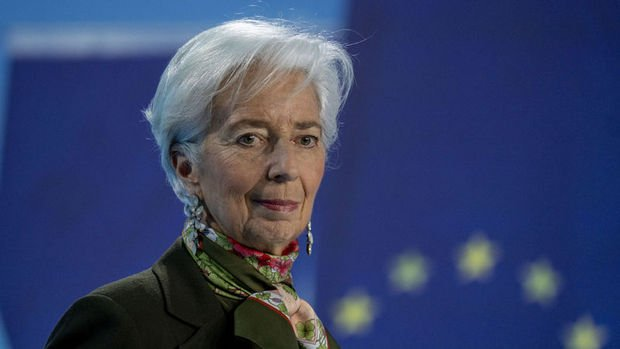Inflation forecast from ECB
European Central Bank (ECB) President Christine Lagarde said that they expect the disinflation process to continue. European Central Bank (ECB) President Christine Lagarde spoke on the ECB Annual Report at the European Parliament (EP) General Assembly session held in Strasbourg. Recalling that the Eurozone faced serious adversities due to a series of shocks that pushed inflation to very high levels following the recovery from the Covid-19 pandemic, Lagarde stated that inflation, which peaked at 10.6 percent in October 2022, has declined significantly thanks to the easing of energy shocks and various supply-side disruptions and decisive policy steps in the recent period. Lagarde reminded that economic activity in the Eurozone will be weak in 2023 and growth stagnated in the last quarter. Pointing out that demand for Eurozone exports has decreased due to the weakening in global trade and losses in competitiveness, Lagarde emphasized that tight financing conditions are putting pressure on growth. Lagarde said that some forward-looking indicators point to a recovery later this year. Slightly Decreased in January Recalling that inflation decreased slightly to 2.8 percent in January, Lagarde said, "Wage pressures are still strong. Wage increases are expected to become an increasingly important factor in inflation dynamics in the coming quarters." "We expect inflation to continue to slow as the impact of past upward shocks diminishes and tight financing conditions help bring inflation down," said Lagarde, adding that the main policy interest rates were left unchanged in the ECB's last meeting and that if current interest rates are maintained long enough, inflation will return to the 2 percent medium-term target. Lagarde emphasized that she expects the decline in inflation to continue, that the ECB Governing Council wants to ensure that inflation reaches the 2 percent target in a sustainable manner, and that they will continue to follow a data-based approach in monetary policy during this process. "Instability poses a threat" Stating that "High energy prices and increasing geopolitical instability pose a threat to the competitiveness of the Eurozone," Lagarde first pointed out the importance of their progress on energy independence. Recalling that Europe needs an additional €620 billion per year to finance its environmental and climate targets and €125 billion for digital transformation, Lagarde pointed out the importance of eliminating deficiencies in the functioning of the financial system and deepening the economic and monetary union for these investments. Stating that Europe's completion of the capital markets union will play a key role in financing the green and digital transformation, Lagarde said, "Our capital markets are fragmented. As a result, our capital markets lack depth and liquidity, especially when compared to those in the US."


